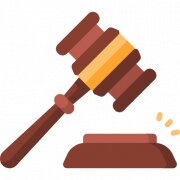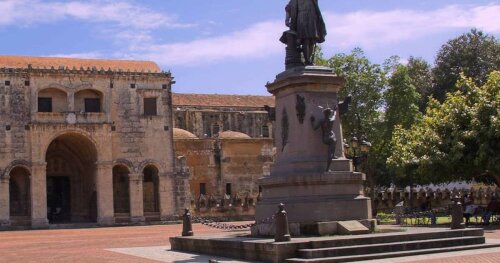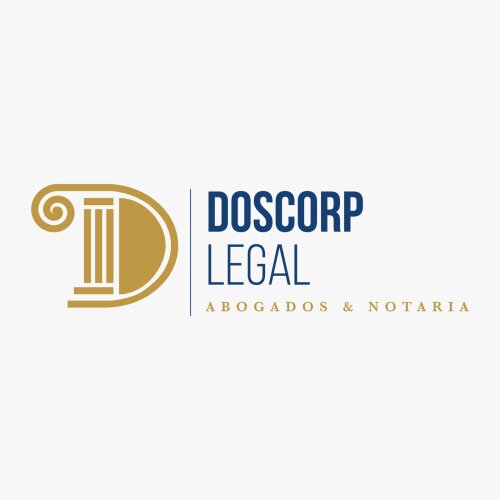Best Conveyancing Lawyers in Santo Domingo
Share your needs with us, get contacted by law firms.
Free. Takes 2 min.
Free Guide to Hiring a Real Estate Lawyer
List of the best lawyers in Santo Domingo, Dominican Republic
About Conveyancing Law in Santo Domingo, Dominican Republic
Conveyancing in Santo Domingo, Dominican Republic is the legal process of transferring the ownership of real estate from one party to another. The process is governed by Dominican property law, influenced by both local statutes and adaptations of the French Civil Code. Conveyancing covers a variety of tasks such as drafting and reviewing the sales agreement, conducting due diligence for title verification, coordinating payments, and registering property changes with local authorities. It is essential for both buyers and sellers to understand the legal framework and procedural requirements to ensure that property transfers are valid and secure.
Why You May Need a Lawyer
There are several situations where individuals may require the expertise of a conveyancing lawyer in Santo Domingo, Dominican Republic. These include:
- Purchasing or selling residential or commercial property
- Transferring property due to inheritance or gifting
- Resolving title disputes or verifying ownership records
- Handling property division in divorce proceedings
- Obtaining and registering mortgages or other encumbrances
- Assisting foreign investors with local property purchases
- Dealing with zoning, land use, or planning permissions
In all these cases, a conveyancing lawyer helps ensure your interests are protected, paperwork is accurate, and that the transaction complies with Dominican laws.
Local Laws Overview
Conveyancing in Santo Domingo is regulated mainly under the Real Estate Registration Law No. 108-05, its regulations, and the provisions in the Civil Code. Key legal aspects include:
- Title Registration: The Dominican Republic operates a registered title system. A clear and updated title certificate ("Certificado de Título") is essential for every property transaction.
- Due Diligence: Legal due diligence encompasses confirming the absence of encumbrances, liens, or disputes over the property and verifying the seller's authority to sell.
- Purchase Agreement: The "Contrato de Venta" (sales contract) sets forth the terms of sale. It must be notarized.
- Taxation: Property transfers are subject to transfer taxes which need to be settled before the transaction is complete.
- Public Registry: The Registrar of Titles (“Registro de Títulos”) is responsible for updating property ownership records.
- Special Considerations for Foreigners: Foreigners have the same rights as locals when acquiring property, but extra attention is needed for currency transfers, residency requirements, and tax implications.
Frequently Asked Questions
What documents are required for a property sale in Santo Domingo?
Commonly required documents include the property title certificate, the sales contract, valid identification documents for buyer and seller, proof of tax payments, and a no-debt certification from the local municipality.
How long does the conveyancing process take?
The duration varies but typically ranges from a few weeks up to several months, depending on the complexity of the transaction and the efficiency of public registries.
Are there any restrictions for foreigners buying property?
There are no significant restrictions for foreigners, but they must comply with money laundering legislation and ensure proper documentation for currency transactions and property registration.
What taxes are payable when transferring property?
The main tax is the property transfer tax, which is usually three percent of the government-appraised value of the property. There may also be notary and registration fees.
What is the role of the notary public in conveyancing?
The notary public drafts and certifies the property transfer deed, ensures all legal documents are in order, and provides authentication essential for registration.
How do I verify property ownership and encumbrances?
A certified title certificate can be requested from the Registry of Titles. It will reflect current ownership and any liens or encumbrances on the property.
What happens if there are disputes over property boundaries or ownership?
Disputes are generally resolved through legal proceedings in the Dominican courts. It is crucial to have clear title and proper surveys to avoid such issues.
Is it necessary to be physically present for the transaction?
While personal presence is recommended, you may appoint a legal representative through a power of attorney to act on your behalf during the transaction.
How can I protect myself from fraud in real estate transactions?
Engage a reputable conveyancing lawyer for due diligence, verify all original documents, and avoid cash transactions when possible. Make payments through regulated banks.
How is property inherited or transferred upon death?
Property can be transferred to heirs through probate proceedings in accordance with Dominican inheritance laws. This generally involves succession certificates and title updates in the Registry of Titles.
Additional Resources
If you need more information or official forms, consider reaching out to the following:
- Registro de Títulos de Santo Domingo - The official regional office responsible for property records and title certificates.
- Dirección General de Impuestos Internos (DGII) - Oversees property tax matters and transfer taxes.
- Colegio de Notarios de la República Dominicana - The national organization of notaries that can provide guidance on notarial procedures.
- Asociación de Abogados Inmobiliarios - Local professional association of real estate lawyers.
Next Steps
If you are considering a property transaction in Santo Domingo, it is advisable to consult with a local conveyancing lawyer before proceeding. Take the following steps:
- Gather all relevant documents related to the property and your personal identification
- Contact a qualified conveyancing attorney familiar with local laws and practices
- Request a title search and due diligence report on the property
- Discuss the transaction scope, fees, and timelines with your lawyer
- Proceed with the drafting and signing of the sales agreement through a notary
- Ensure all taxes and fees are paid, and register the transfer with the relevant public registry
Legal support can be invaluable in avoiding costly mistakes and ensuring your property rights in Santo Domingo are protected throughout the conveyancing process.
Lawzana helps you find the best lawyers and law firms in Santo Domingo through a curated and pre-screened list of qualified legal professionals. Our platform offers rankings and detailed profiles of attorneys and law firms, allowing you to compare based on practice areas, including Conveyancing, experience, and client feedback.
Each profile includes a description of the firm's areas of practice, client reviews, team members and partners, year of establishment, spoken languages, office locations, contact information, social media presence, and any published articles or resources. Most firms on our platform speak English and are experienced in both local and international legal matters.
Get a quote from top-rated law firms in Santo Domingo, Dominican Republic — quickly, securely, and without unnecessary hassle.
Disclaimer:
The information provided on this page is for general informational purposes only and does not constitute legal advice. While we strive to ensure the accuracy and relevance of the content, legal information may change over time, and interpretations of the law can vary. You should always consult with a qualified legal professional for advice specific to your situation.
We disclaim all liability for actions taken or not taken based on the content of this page. If you believe any information is incorrect or outdated, please contact us, and we will review and update it where appropriate.















